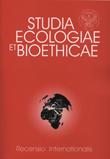Обучениеиностранномуязыку: культурологическийдискурс
Teaching of foreign languages: culturological discourse
Author(s): Jovita DaukšytėSubject(s): Essay|Book Review |Scientific Life
Published by: Wydawnictwo Naukowe Uniwersytetu Kardynała Stefana Wyszyńskiego w Warszawie
Keywords: intercultural communication; lingua-culturology; sociocultural aspect; personality; social competences
Summary/Abstract: A person, who lives in a constantly changing geo-economic and geo-cultural context, should be able to engage in a mutually rewarding dialogue with all the subjects in the context. A person should be able to build up humanitarian and inter-cultural bridges between countries and cultures. Language has an important role in the process, and sometimes it becomes the only tool for mutual understanding of different lingua-ethnical communities. A person and his/her language are inseparable. A person does not exist without a language, and a language is only alive if a person is there. Language reflects the world we have created, and also our history, and culture. And this fact serves as an argument for the claim that a foreign language (including Russian language, as a second language (in Lithuania) should not be taught in a separated from the culture, history, and traditions of its native country. It is evident that lingua-didactical and methodical researches have to be re-orientated to the field of intercultural communication. Therefore recently the discussions about the new discipline in philology – lingua-culturology – became more intensive. This discipline focuses on communication processes of emergence and development of the language itself, provided the systemic picture of language, and also, focuses on the educational and intellectual functions of language. While studying a foreign language, it is insufficient to learn new words, or grammar rules, it is of utmost importance to know: 1) the type of address, under which circumstance what and where could be said; 2) that any concept, meaning, phrase also lives in a reality of the language learnt. While studying Russian language as a second language, it is imperative to relate it to lingua-ethnoculture and the Russian culture. However, all the facts and data should be treated as an integral part of the lingua-mental culture of the humankind at its interface with the culture of the certain nation, the carrier of the language.
Journal: Studia Ecologiae et Bioethicae
- Issue Year: 11/2013
- Issue No: 4
- Page Range: 33-47
- Page Count: 15
- Language: Russian

